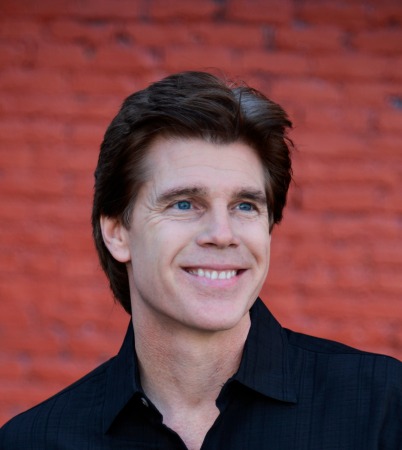 Interview by Carol Smallwood
Interview by Carol Smallwood
What gave you the desire to write your latest collection of poems?
Well, it’s definitely different from the collections that came before. Looking back, I can see that “Interstate” is inspired by driving, the road, and the landscape of the Pacific Northwest. It’s a kind of travelogue, both external and internal. Then, “Western Dream” came about as a sort of comedy set on the West Coast. I wanted humor to be a strong part of the personality of that collection. The Dice Throwers is a mythologized autobiography, and Bali Poems is a dreamy collection I wrote on a trip to the island of Bali. The Gold Tooth in the Crooked Smile of God is a set of snapshots over five years, made up outcasts, misfits and characters on the fringes of society, with a strong Alki flavor. In contrast, The Blue Island is theatrical, cinematic, the way “Ascent to the Gallows,” is a kind of movie. I was glad the folks I asked to read it for blurbs caught on to that. Not that I’m attached to readers seeing the same way I do, but The Blue Island is a quadruple-feature. I’ve always wanted to make films, studied film in college, thought and dreamed in technicolor. So, among the other books, The Blue Island comes most specifically from the desire to make a movie….
Has being a resident of the state of Washington influenced this collection?
At first, I thought, no. But that’s only true in regard to the “Ascent to the Gallows” section, which is largely set in Paris, France. However, that’s only because that section is a movie within a movie based on the Louise Malle film as I dreamed it (without watching it), based solely on listening to, riffing on, and extrapolating from the Miles Davis Soundtrack. But when I look again, think again, I see details that come straight out of the Northwest landscape. The other sections, too, have definite details, locations and images that are specifically Northwest. I have to admit it, the landscape of the Northwest is all over my writing.
When did you begin writing poetry and have you had other genres published?
I began writing poetry right off the bat. Always. I love it, love the freedom of it. But I also write and have published fiction and non-fiction.
What work won the Best of the Net Award? Nominations for a Pushcart and other awards?
A poem called “Trunyan,” from Bali Poems, was nominated for a best of the net. A poem called “Rattlesnake,” from Interstate, was nominated for a Pushcart. And a story called “Flight,” which is an excerpt from a forthcoming novel, was nominated for a Best of the net and a Pushcart.
How would you describe your writing style?
It starts as a stream of consciousness, a mind movie. When I decide to make it public, I think I go through a process of making anything like style transparent, so that you just read and get lost in the dream. If you wake up and think, oh, that was beautifully written, that’s my ego getting in the way.
What are 5 magazines in which you appear among so many?
Well, five journals I’ve published in that stand out because they’re pretty well known (at least to publishing writers) are Midwest Quarterly, Mid-American Poetry Review, The Chicago Quarterly Review, Chiron, and Bitter Oleander. Those were journals I wanted very much to be in and sent a lot of stuff to over the years. But there’s another five that stand out for me even more because they were the first to publish anything of mine when I didn’t have any publishing credits: Raven Chronicles (now closed) published a poem of mine I submitted when I started sending work out thinking that a few publications might help me get into graduate school; that journal was just starting out and was located in Seattle. I felt very proud to be in that journal. Then there was Slipstream, which was the first glossy, perfect bound journal I was in, and then Jeopardy, Louisiana Literature, and a journal (I don’t think it’s around anymore) called the Mandrake Poetry Review, which was published somewhere out of Prague…I think it was? I can’t remember, but they took seven poems of mine, and I just felt like a superstar. That was a fun moment.
How does being a writing teacher relate to being a writer, as I can see it being both good and bad.
I’ve only experienced it as a positive relationship. If I say something as a writing teacher, like, for example, ‘you should be ruthless in revision,’ I apply it to myself. It’s good to practice what you teach.
How can we find out more about you and your work?
You can find me at my website: https://douglastcole.com, on Facebook, or on Amazon.
About the interviewer: Carol Smallwood is a literary reader, judge, and interviewer. A recent poetry collection is Patterns: Moments in Time (WordTech Communications, 2019).